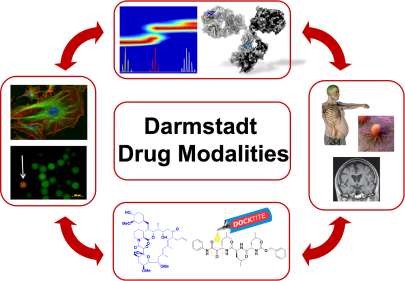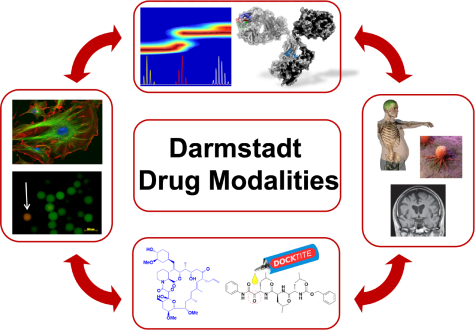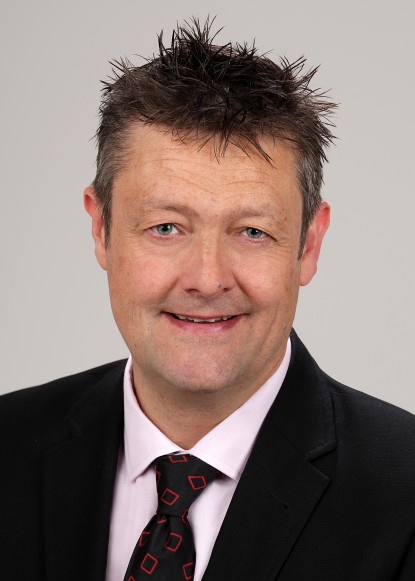Drug Modalities – Tailoring Molecules to Improve Health
Healthcare is a key societal challenge and drug discovery a key part of solutions. Age- and industrialized lifestyle-associated diseases (Alzheimer’s disease, cancer, depression, pain, obesity, etc.) and emerging pathogens such as SARS-CoV-2 will continuously increase the burden of disease. To meet this medical need, next generation drugs have to tackle increasingly complex molecular mechanisms. In turn, mechanistically more refined types of drugs – also called new drug modalities – are required.
The Research Area ‘Drug Modalities’ in Darmstadt pursues three approaches that are critical to early drug discovery:
(i) Next generation drug classes such as covalent-reactive probes, PROTACs, molecular glues, macrocycles, peptides/peptide mimetics, and functionalized antibodies
(ii) Cutting-edge methods development including rational drug design, protein engineering, screening, drug delivery, sustainable synthesis, transient binding pockets, and conformation-sensitive ion-mobility mass spectrometry.
(iii) Model systems such as immunophilins, kinases, proteases, chemokines, and GPCRs, which allow proof-of-concept studies and have direct potential for application.
These research lines are pursued together with the local pharmaceutical companies and in close collaboration with the biomedical research hubs of the Rhine-Main region.




